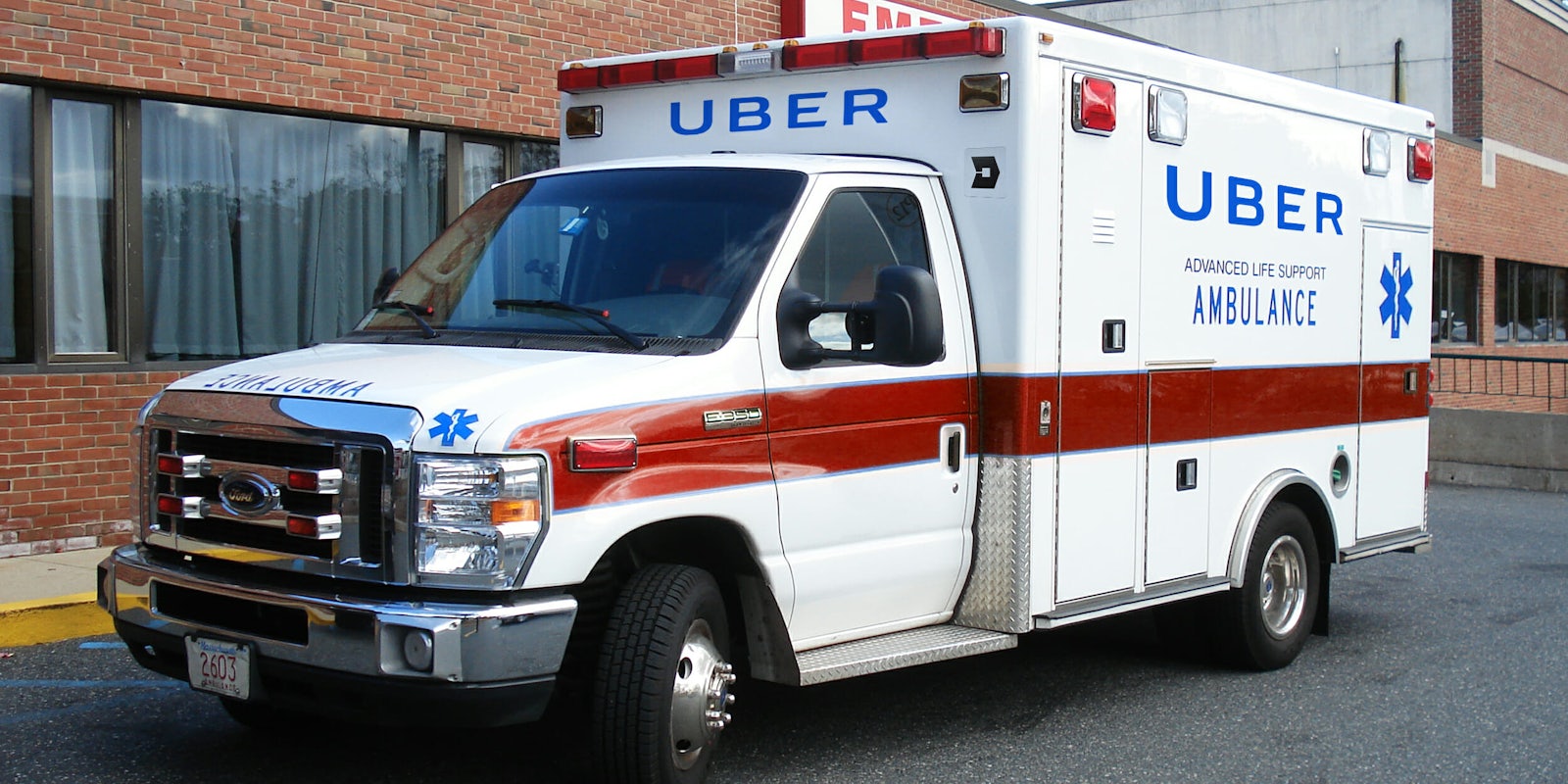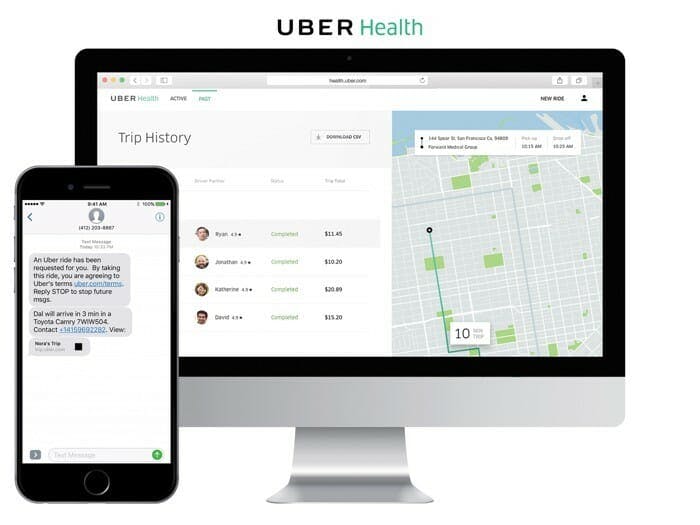Uber is making a foray into the lucrative business of healthcare. The ride-hailing giant is launching a program called Uber Health so that clinics and hospitals can more easily arrange travel for patients.
According to Uber Health General Manager Chris Weber, the business solves a legitimate issue. 3.6 million Americans miss medical appointments due to a lack of reliable transportation. These missed appointments cost the healthcare industry $150 billion each year.
Uber Health takes this on by allowing medical facilities to book travel on a patient’s behalf. It differs from “normal” Uber in that it operates from a centralized web dashboard. Riders don’t need to be Uber users themselves, or even own a smartphone. A clinic staffer can book travel for a patient with their name, phone number, and a pick-up and drop-off location. The staffer can also select which type of Uber vehicle makes the trip. The client then gets a text message confirming the ride that includes a terms of service URL. Instead of keeping track of your Uber driver’s status via app, clients can check a web link to see whether they’re getting close.
Alternatively, arrangements can be made via a phone call. The clinic can then print out the details for the patient to take with them. Rides cost approximately the same amount as they would via the normal Uber app.
Information is stored client-side in HIPAA-compliant servers, so clinics can easily view and export records, or deal with billing. Uber also developed an API so healthcare companies can work Uber Health into their own patient management applications.
Uber Health began as a private beta last summer, and already has more than 100 healthcare organizations on board. Jay Holley, head of partnerships at Uber Health, told the Atlantic that while Medicaid and insurance plans don’t seem to cover the costs of these rides yet, a number of hospitals are paying for Uber Health rides with their own budgets because, in the end, it saves them money over missed appointments.
Interestingly, Uber was already breaking into healthcare before this initiative. Since Uber launched, ambulance use has dropped 7 percent;in an effort to save costs in not-quite-life-threatening scenarios, people have been using Ubers to get to the ER rather than calling an ambulance. The University of Kansas researchers behind the study estimate that ambulance use could drop up to 15 percent in the next few years.
With Uber Health, the company may introduce its services to an entirely new subset of users who could download the app and begin using it for other travel needs. The business also takes another stab at the taxicab industry, which has historically been an option for non-emergency medical visits, too.
H/T the Atlantic



